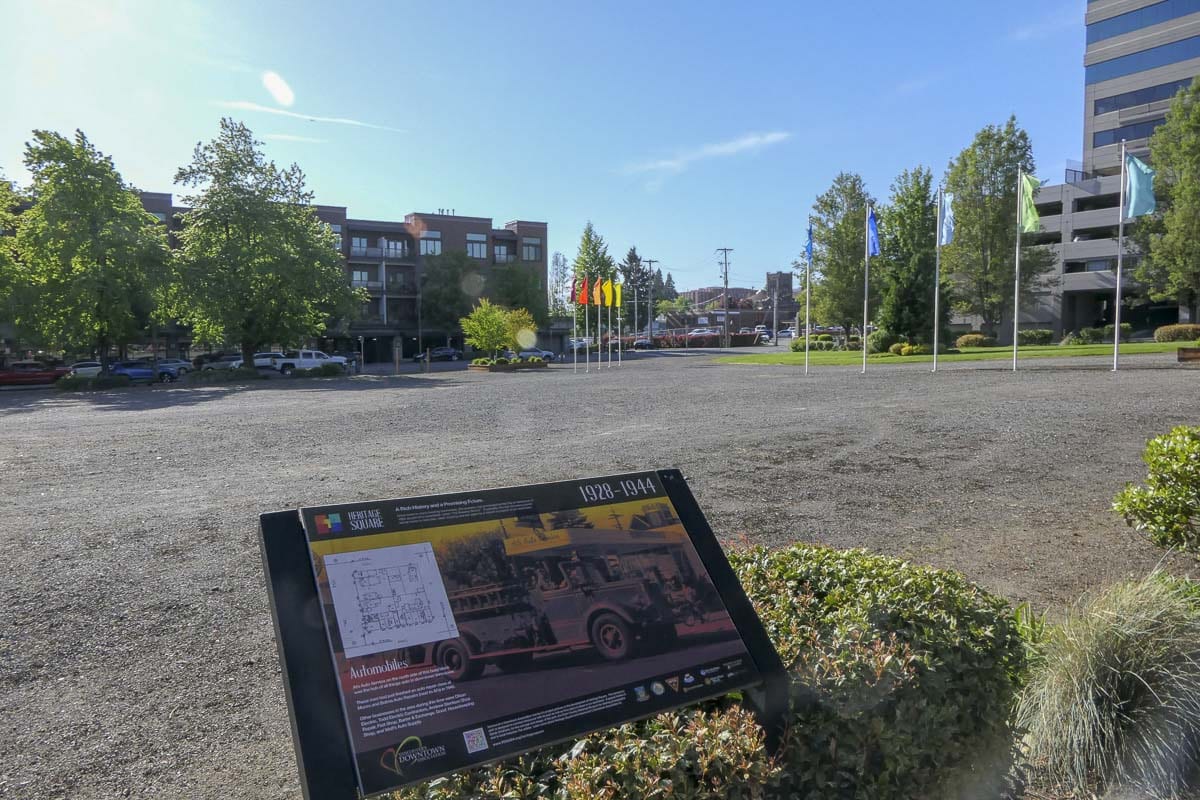Deal will save Holland Partner Group $772K over eight years
VANCOUVER — The long-awaited development of Block 10 in downtown Vancouver will move ahead after Vancouver City Council members agreed to allow Holland Partner Group to forgo property tax payments for eight years on residential units in the new building.

The tax abatement, which allows the city to take advantage of the state’s Multifamily Tax Exemption Program (MFTE) to encourage developers to include residential units in their buildings, amounts to approximately $772,000 over that eight years for all taxing districts, including $253,000 for the city of Vancouver.
In exchange, Holland agrees to make 20 percent of the residential units in the building affordable.
The biggest debate during Monday’s meeting was over the word “affordable,” and how it was defined for the purposes of this tax incentive program.
Under the MFTE, an affordable unit is classified as one that costs no more than 30 percent of the median income for an area. But the issue is that, since this is a state program, it uses data provided by the federal government through Housing and Urban Development (HUD). That data includes the Portland and Hillsboro areas, bumping the median income level in Vancouver to nearly $88,000.
That number is nearly $32,000 higher than the actual median income of $56,000 in Vancouver, according to 2017 census data.
Using the HUD data of regional income means an apartment in Block 10 could go for as much as $2,197 a month and still qualify as affordable.
Glen Yung, who lives in downtown Vancouver, said that creates an issue of transparency for the city.
“The public generally sees this as being a tax abatement for people creating affordable housing,” said Yung. “And it’s really not.”
“I agree with you,” said Mayor Anne McEnerney-Ogle, who had asked earlier if there was a way to base affordability only on Vancouver income data. “There is some extreme outliers in that data census.”

McEnerney-Ogle and Councilor Ty Stober mentioned that might be a point of discussion for the city with state and federal legislators.
Holland says it anticipates rents in the building will start at $1,496 for a studio apartment, on up to $2,578 a month for a two bedroom/two bath unit. Fifty-three of the 110 proposed residential units would be one bed/one bath for nearly $1,900 a month.
Sheehan said the tax exemption for multifamily developments was introduced in 2016 and has been approved for 28 developments so far, with three in the application phase. Those developments have brought 2,564 housing units to the city, with 552 income restricted units. Currently the city only approves the program for the downtown area and parts of Fourth Plain.
Block 10, located east of Columbia and north of 8th Street, is the final piece of the former Lucky Lager Brewing Company property purchased by the city in the early 1990s. The city will continue owning the property, and lease it to Holland with an option to buy it after 30 years.
Attempts to find a grocery store to occupy the spot fell short, and earlier this year the city entered an agreement with Holland Partners Group to develop a five-story office building, including two floors of parking with an estimated 110 spaces.
Holland will make part of that space their new headquarters, and agree to remain there for at least 10 years. 73,000-square feet will be classified as residential, with another 10,000 square feet of commercial space, including ground floor retail locations.
That development, said Mayor Pro Tem Bart Hansen, is worth giving up some revenue over the next two decades, considering it has been of zero benefit to the city since 1993, and may continue to present no benefit without the incentives.
“Twenty-six years it’s been sitting there with zero dollars coming in, and it has been a blight on downtown of ‘why can we not get this property developed?’” said Hansen. “I would love to see this property developed.”
Sheehan noted the development is expected to have a total construction value of $42.5 million, and bring in an estimated $4.37 million in tax revenue, including $1.2 million directly to the city of Vancouver.
“There’s going to be a commercial component to this development as well,” noted Hansen, “that is not going to be receiving this abatement. And I think that’s very important to stress.”
Holland hopes to break ground on the development sometime in the 2nd quarter of 2020.




